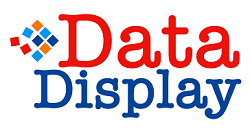
In today’s fast-paced business environment, maximising efficiency is crucial for success. For businesses that offer classes—be it dance schools, gyms, or educational institutions—this efficiency often hinges on effective scheduling and management. Traditionally, many of these businesses have relied on spreadsheets to manage bookings and schedules. However, with the advent of class booking software, the landscape of class management has transformed dramatically. This blog will explore the pivotal role of class booking management software in enhancing your business efficiency, transitioning from spreadsheets to automated systems.
The Evolution from Spreadsheets to Automated Systems
Spreadsheets have long been the go-to tool for managing class schedules and bookings. They offer a basic, manual method for organising data, but they come with several limitations:
- Time-Consuming: Manually updating spreadsheets is a laborious task. Every new booking, cancellation, or change requires manual input, which is time-consuming and prone to errors.
- Prone to Errors: Human error is inevitable when manually entering data. Mistakes can lead to double bookings, scheduling conflicts, and unhappy clients.
- Lack of Real-Time Updates: Spreadsheets do not provide real-time updates, making it difficult to keep track of changes promptly.
- Limited Accessibility: Spreadsheets are often stored on individual computers or local servers, limiting access for team members and clients.
These limitations have driven many businesses to seek more efficient solutions, leading to the adoption of class booking software.
What is Class Booking Management Software?
Class booking management software is a comprehensive tool designed to automate and streamline the process of scheduling and managing classes. It integrates various functionalities, including booking, scheduling, payment processing, invoicing, and reporting, into one unified platform. This automation not only saves time but also reduces the risk of errors, improves client satisfaction, and enhances overall business efficiency.
Benefits of Class Booking Software
- Streamlined Scheduling
- Automated Booking: Class booking software allows clients to book classes online at their convenience. This automation eliminates the need for manual entry, reducing administrative burden and minimising errors.
- Real-Time Updates: The software provides real-time updates on class availability, ensuring that both clients and staff have access to the most current information. This feature helps prevent overbooking and scheduling conflicts.
- Enhanced Client Experience
- 24/7 Accessibility: Clients can access the booking system at any time, providing them with flexibility and convenience. This accessibility can lead to increased bookings and higher client satisfaction.
- Automated Reminders: Automated email or SMS reminders reduce no-shows by reminding clients of their upcoming classes. This feature ensures that clients remain engaged and committed.
- Optimised Resource Management
- Instructor Allocation: The software can automatically assign instructors to classes based on their availability and expertise. This optimisation ensures that each class is led by a qualified instructor, improving the quality of the service provided.
- Facility Utilisation: Efficiently manage your facilities by ensuring that spaces are utilised optimally and not double-booked. This feature helps in maximising the use of available resources.
- Improved Financial Management
- Integrated Payments: Class booking software often includes secure, automated payment processing. Clients can pay for classes online at the time of booking, simplifying fee collection and improving cash flow.
- Automated Invoicing: The software can generate invoices automatically upon booking, ensuring that all financial transactions are recorded accurately and efficiently. This feature reduces the need for manual invoicing and follow-ups on unpaid fees.
- Comprehensive Reporting and Analytics
- Real-Time Data: Access real-time data on class attendance, revenue, and client engagement. This information can help you make informed decisions about your business operations.
- Customisable Reports: Generate reports tailored to your specific needs, such as tracking the popularity of certain classes or monitoring instructor performance. This capability provides valuable insights into your business, helping you to identify trends and areas for improvement.
Implementing Class Booking Software: Key Considerations
- Identify Your Business Needs
- Evaluate the specific needs of your business. Consider factors such as the number of classes, the size of your client base, and any unique requirements you might have. This evaluation will help you choose the most suitable class management software.
- Research and Compare Options
- Look for software that offers the features you need and fits within your budget. Pay attention to user reviews and testimonials to gauge the experiences of other businesses similar to yours.
- Utilise Free Trials
- Many software providers offer free trials. Use this opportunity to test the software’s functionalities and see how well it integrates with your existing processes. This trial period can be crucial in determining if the software meets your needs.
- Invest in Training
- Once you’ve chosen a software, invest time in training your staff. Ensure that everyone who will be using the system is comfortable with its features and understands how to maximise its benefits.
- Communicate with Clients
- Inform your clients about the new booking system. Provide clear instructions on how to use it and highlight the benefits, such as 24/7 booking access and automated reminders.
- Monitor and Adjust
- After implementation, monitor the system’s performance and gather feedback from both staff and clients. Be prepared to make adjustments as needed to ensure that the software is meeting your business’s needs effectively.
Overcoming Challenges
Transitioning from spreadsheets to automated systems can come with challenges. Here are some tips to overcome common obstacles:
- Data Migration: Transferring data from spreadsheets to the new software can be daunting. Work closely with the software provider to ensure a smooth transition.
- User Resistance: Change can be difficult for staff and clients accustomed to the old way of doing things. Offer training sessions and provide ongoing support to ease the transition.
- System Integration: Ensure that the new software integrates well with your existing systems, such as accounting software. This integration can prevent data silos and ensure a seamless workflow.
Future Trends in Class Booking Management
The landscape of class booking management is continually evolving. Here are a few trends to watch for:
- Mobile Accessibility: As more people use mobile devices for everyday tasks, class booking software is becoming increasingly mobile-friendly. Mobile apps and responsive web design ensure that both staff and clients can access the system on the go.
- Artificial Intelligence: AI is being integrated into class booking systems to provide personalised recommendations for classes based on student preferences and past attendance.
- Enhanced Data Security: With the increasing importance of data privacy, class booking software providers are focusing on enhancing security measures to protect sensitive client information.
Conclusion
Class booking management software is a game-changer for class-based businesses looking to maximise efficiency. By automating the booking and scheduling process, improving client engagement, optimising resource management, and providing real-time insights, this software helps businesses transition from manual, spreadsheet-based systems to streamlined, automated solutions. The result is not only improved operational efficiency but also enhanced client satisfaction and business growth. As you consider making the switch, evaluate your specific needs, research your options, and be prepared to invest in training and support to ensure a smooth and successful transition.




